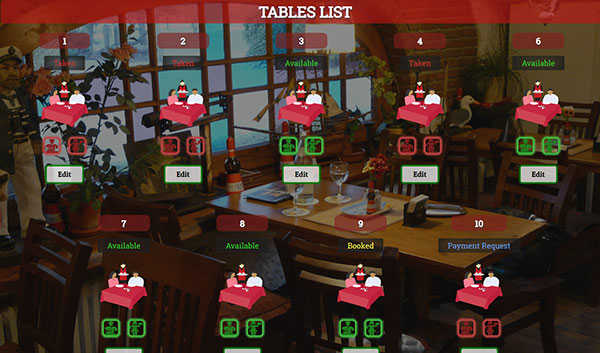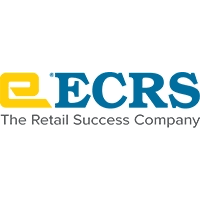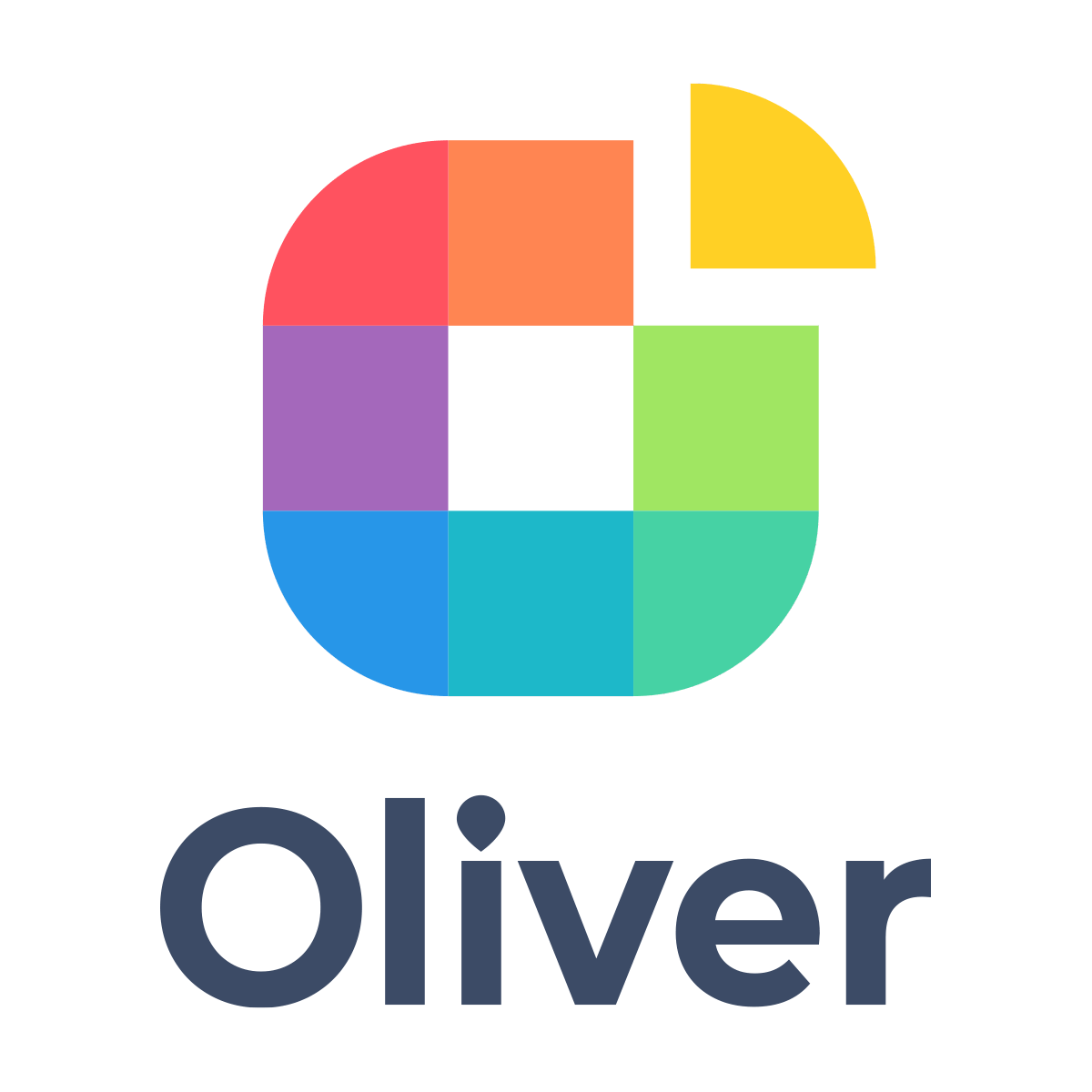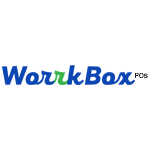Description

Restaurant Manager Pro

ECRS
Comprehensive Overview: Restaurant Manager Pro vs ECRS
Restaurant Manager Pro, ECRS
a) Primary Functions and Target Markets:
Restaurant Manager Pro:
- Primary Functions: Restaurant Manager Pro is designed to streamline operations in the food and beverage industry. It typically offers functionalities like point-of-sale (POS) systems, order management, inventory tracking, table management, staff scheduling, and reporting/analytics tools. The system aims to improve efficiency in ordering processes, manage customer interactions, and optimize the overall dining experience.
- Target Markets: This product primarily targets small to medium-sized restaurants, cafes, bars, and other food service establishments looking for an integrated POS solution to enhance their operations.
ECRS (Electronic Cash Register Systems):
- Primary Functions: ECRS offers a diverse range of services and products tailored for retail businesses, including grocery and convenience stores but also extends to dining establishments. Their solutions focus on automated checkout systems, inventory management, customer engagement, and back-office operations. Features might include advanced POS systems, self-checkout, kiosk solutions, and comprehensive reporting.
- Target Markets: ECRS primarily targets the retail sector, particularly grocery and convenience store chains, alongside food service providers who benefit from integrated retail and restaurant management systems.
b) Market Share and User Base:
Restaurant Manager Pro:
- Restaurant Manager Pro is a niche player in the specialized restaurant management software market. Its market share is more prominent among small to medium-sized establishments that require robust POS functionalities without extensive retail capabilities.
ECRS:
- ECRS holds a stronger position in the market due to its versatility and broad applicability across the retail industry, including grocers and convenience stores. Its reach in the restaurant sector is less dominant compared to dedicated restaurant-focused solutions but benefits from comprehensive integrations useful for hybrid businesses that handle both retail and foodservice.
c) Key Differentiating Factors:
Restaurant Manager Pro:
- Specialization: Focuses strictly on restaurant and food service management, providing tailored features for this industry.
- Customization and Flexibility: Offers customizable solutions fitting unique restaurant operations, such as table management and dynamic menu offerings.
- Ease of Use: Generally, systems are designed to be intuitive for restaurant settings, requiring less training for staff.
ECRS:
- Versatility: Provides solutions applicable to both retail and restaurant environments, suitable for businesses that exist in both sectors.
- Integrated Retail Functions: Unlike Restaurant Manager Pro, ECRS systems offer deep retail integrations and management features, making it ideal for restaurants needing retail operations like grocery service.
- Innovation in Checkout Solutions: ECRS typically offers advanced checkout technologies, including self-service and automated kiosks, which are less common in restaurant-specific software.
In summary, Restaurant Manager Pro is more concentrated on the specific needs of foodservice establishments, whereas ECRS brings a hybrid approach, focusing on both retail and restaurant capabilities, making it a strong choice for businesses operating across these sectors.
Contact Info

Year founded :
Not Available
Not Available
Not Available
Not Available
Not Available

Year founded :
1940
Not Available
Not Available
Not Available
Not Available
Feature Similarity Breakdown: Restaurant Manager Pro, ECRS
As of my last update, I don't have direct access to real-time data on specific proprietary software such as Restaurant Manager Pro and ECRS. However, I can provide a general framework for comparing these types of point-of-sale (POS) systems in the restaurant industry. Typically, such software platforms offer various features to streamline operations and improve customer service. I'll break down the features based on standard industry knowledge:
a) Common Core Features
-
Order Management:
- Both platforms likely offer comprehensive order management that supports table service, quick service, and takeout orders. This includes features for customizing orders, splitting bills, and tracking sales.
-
Inventory Management:
- They probably include inventory tracking to monitor stock levels, manage suppliers, and generate alerts for low-stock items.
-
Payment Processing:
- Support for multiple payment methods, including cash, credit/debit cards, mobile payments, and gift cards.
-
Reporting and Analytics:
- Both systems are expected to provide reporting features that analyze sales data, customer preferences, and staff performance to aid decision-making.
-
Employee Management:
- Typically includes features for managing employee schedules, tracking hours worked, and processing payroll.
-
Customer Relationship Management (CRM):
- Tools to capture customer information, manage loyalty programs, and improve personalized marketing.
-
Integration Capabilities:
- Ability to integrate with third-party applications like accounting software, reservation systems, and online ordering platforms.
b) User Interface Comparison
- Restaurant Manager Pro:
- The interface is usually designed to be intuitive and user-friendly, often featuring customizable dashboards, quick-access menus, and touch-enabled screens suitable for fast-paced environments.
- ECRS:
- Known for its streamlined and efficient interface, ECRS systems often focus on reducing transaction times and enhancing workflow efficiency with clear navigation and concise display layouts.
Both products aim to provide ease of use, but the specific design and customization options may vary, affecting the learning curve and adaptability to different business needs.
c) Unique Features
-
Restaurant Manager Pro:
- May offer specific solutions tailored for different types of restaurants, such as bars, cafes, and fine dining, with unique functionalities like advanced beverage management or reservation systems.
-
ECRS:
- Known for its robust integration with grocery and retail, ECRS might offer advanced features for hybrid models (restaurants within grocery stores) or extensive self-service options for customers.
The uniqueness of these features typically lies in how each company emphasizes certain market needs or adopts innovative technologies to stand out, like artificial intelligence for predictive analytics or advanced mobile device capabilities.
When selecting between these systems, it’s vital to consider the specific operational needs, budget constraints, and scalability plans of your business. For the most accurate and detailed comparison, reaching out to the vendors directly or consulting third-party reviews and reports would be beneficial.
Features

Not Available

Not Available
Best Fit Use Cases: Restaurant Manager Pro, ECRS
Restaurant Manager Pro and ECRS are both designed to cater to specific niches in the foodservice and retail industries. Here's how each serves different types of businesses and scenarios:
a) Best Fit Use Cases for Restaurant Manager Pro:
-
Independent Restaurants: Restaurant Manager Pro is ideal for small to medium-sized independent restaurants that need a customizable and easy-to-use POS solution. Its features are tailored to handle a variety of restaurant-specific tasks such as table management, order tracking, and inventory management.
-
Franchise Chains: For businesses with several locations, such as franchise chains, Restaurant Manager Pro offers scalability and consistent reporting across different units, making it easier to manage and monitor operations from a single platform.
-
Bars and Nightclubs: With capabilities for quick service and high-volume transaction processing, Restaurant Manager Pro is a great fit for bars and nightclubs. The software can handle complex bar tabs and split-ticket scenarios effectively.
-
Cafes and Fast-Casual Dining: Its user-friendly interface and customizable options make it suitable for cafes and fast-casual dining establishments, where speed and efficiency are crucial to customer satisfaction.
b) Preferred Scenarios for ECRS:
-
Grocery and Convenience Stores: ECRS is well-suited for grocery and convenience stores that require robust inventory management, integrated payments, and often complex pricing strategies. Its strong focus on omnichannel retailing helps stores integrate their online and offline sales channels effectively.
-
Large Multi-Location Retailers: For businesses with numerous locations, especially in retail, ECRS provides a comprehensive suite of tools for managing operations across all sites. It offers centralized data management and reporting that can considerably enhance operational efficiency.
-
Pharmacy Chains: ECRS's systems have been designed to accommodate the specific needs of pharmacies, providing tools that help with regulatory compliance, prescription processing, and customer loyalty programs.
-
Co-ops and Specialty Food Retailers: The software is highly adaptable and can cater to the unique demands of co-ops and specialty food stores, which often require detailed inventory tracking for niche products.
d) Catering to Different Industry Verticals or Company Sizes:
-
Industry Verticals: Restaurant Manager Pro primarily caters to the hospitality sector, including various dining establishments, while ECRS is targeted more toward the retail sector, particularly grocery and convenience stores, pharmacies, and specialty retailers. Both systems offer industry-specific features that enhance operational efficiency within their respective markets.
-
Company Sizes: Restaurant Manager Pro is typically more appropriate for small to mid-sized businesses due to its flexibility and scalability, making it a fit for independent operators or those with a few locations. In contrast, ECRS is more suitable for larger enterprises with multiple locations due to its robust centralized management capabilities and comprehensive feature set designed to support large-scale operations.
Both products aim to streamline operations and provide valuable business insights, but their effectiveness largely depends on aligning with the specific needs and size of the organization.
Pricing

Pricing Not Available

Pricing Not Available
Metrics History
Metrics History
Comparing undefined across companies
Conclusion & Final Verdict: Restaurant Manager Pro vs ECRS
When evaluating Restaurant Manager Pro and ECRS for their overall value, it is essential to consider various factors such as features, pricing, ease of use, customer support, and scalability. Here is a detailed analysis:
Conclusion and Final Verdict:
a) Best Overall Value:
- Restaurant Manager Pro tends to offer better value for small to medium-sized establishments that prioritize flexibility and comprehensive management features without needing extensive enterprise integration.
- ECRS (especially Catapult), on the other hand, stands out for businesses that desire a robust, scalable system capable of handling high-volume operations and extensive multi-location management, making it a preferred choice for large enterprises and retail chains.
b) Pros and Cons:
Restaurant Manager Pro:
- Pros:
- Affordable pricing for smaller establishments.
- Easy to use and implement, with a user-friendly interface.
- Comprehensive features that cover essential aspects of POS operations, including table management, inventory control, and reporting.
- Cons:
- May lack advanced features and scalability options required by larger enterprises.
- Limited integration capabilities compared to more robust systems.
ECRS (Catapult):
- Pros:
- Highly scalable solution suitable for large businesses and multiple locations.
- Advanced features, including comprehensive inventory management, customer loyalty programs, and robust reporting tools.
- Strong integration capabilities allowing for enhanced data analytics and connectivity with other enterprise systems.
- Cons:
- Higher cost may be prohibitive for smaller businesses.
- Steeper learning curve due to the complexity of features.
c) Recommendations for Users:
-
For Small to Medium Businesses: Businesses in this category should opt for Restaurant Manager Pro if their focus is on straightforward, cost-effective solutions with essential POS capabilities and ease of use. The limited need for scalability and advanced integrations makes it suitable for this sector.
-
For Large Enterprises and Retail Chains: ECRS is the recommended choice for large businesses looking for a highly scalable system with extensive capabilities and integrations. The ability to manage complex operations across multiple locations and the support for comprehensive analytics and customer loyalty programs provide a significant advantage.
Ultimately, the decision between Restaurant Manager Pro and ECRS should align with the specific requirements, budget constraints, and growth plans of the business. Businesses are encouraged to conduct a thorough assessment of their operational needs and seek demonstrations or trials to better understand which solution aligns with their strategic goals.
Add to compare
Add similar companies



